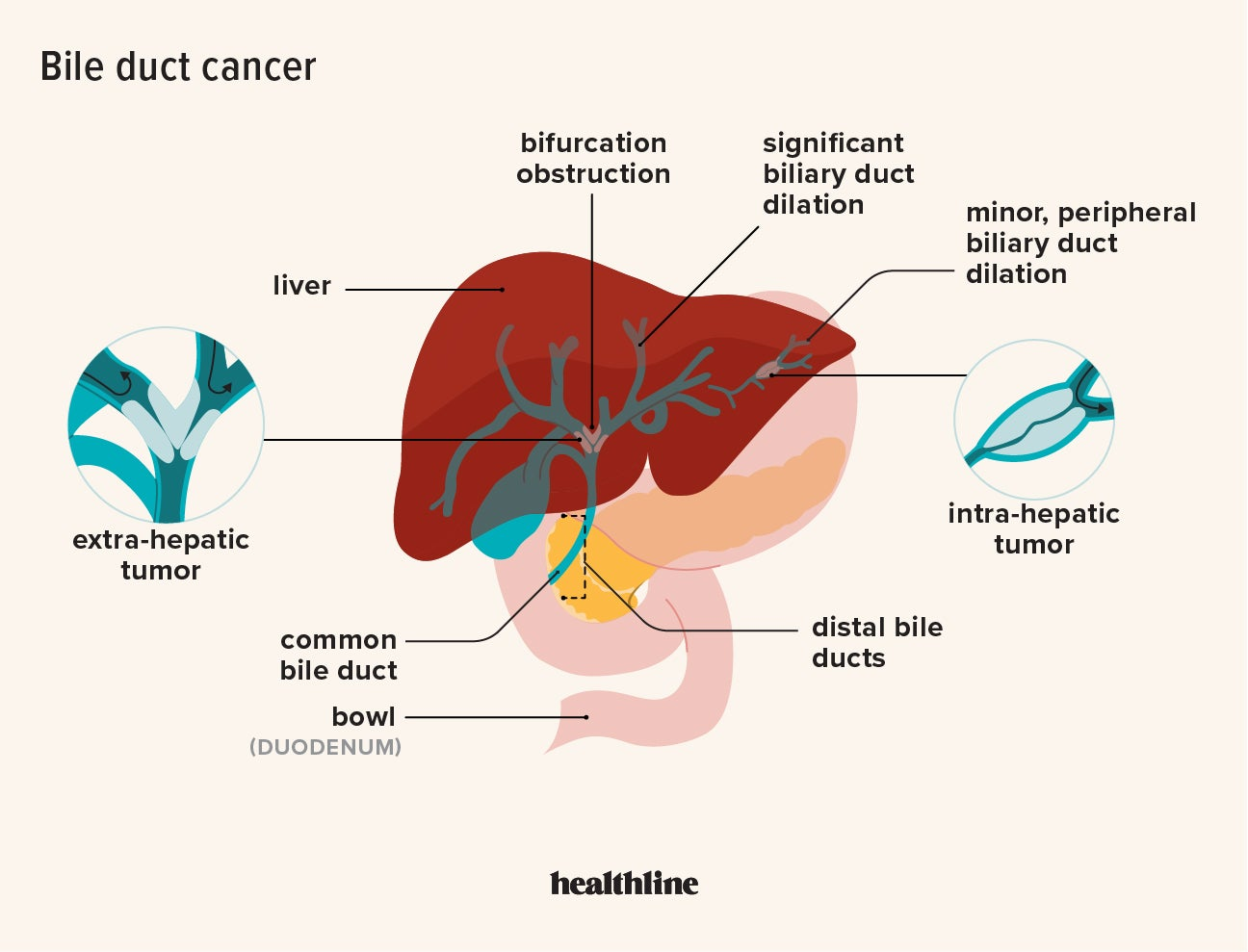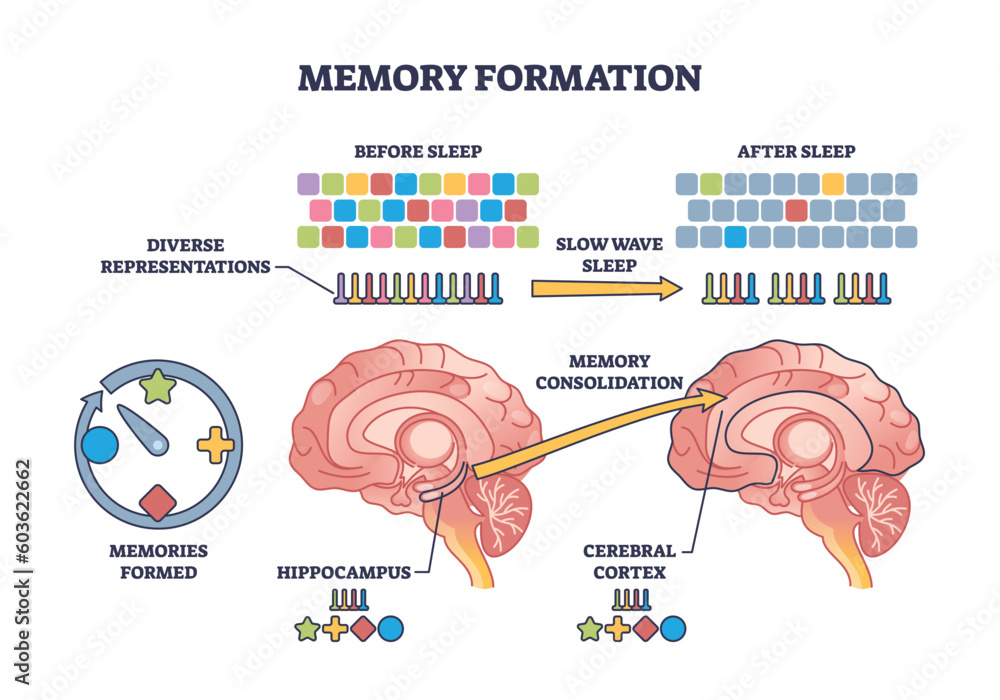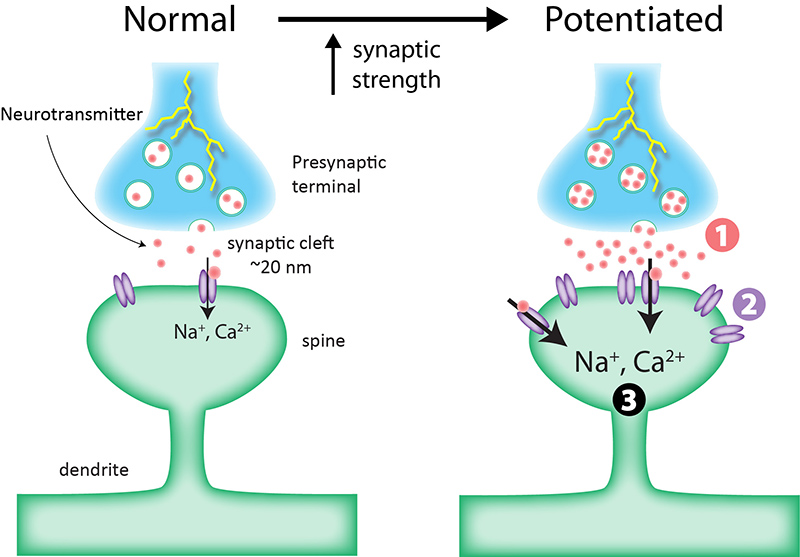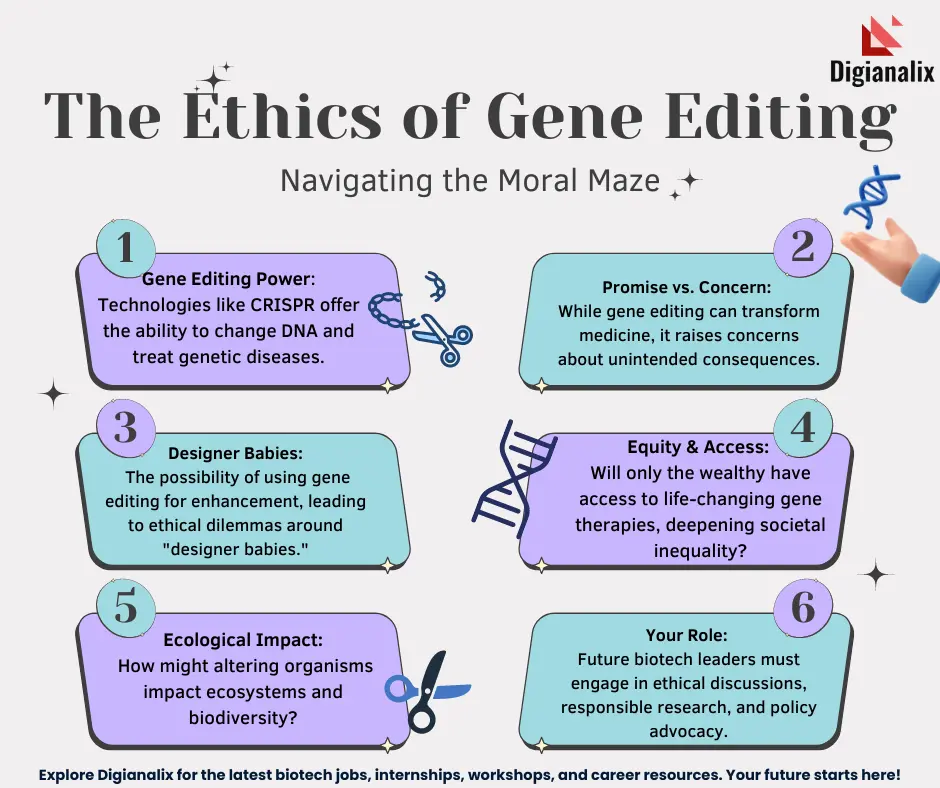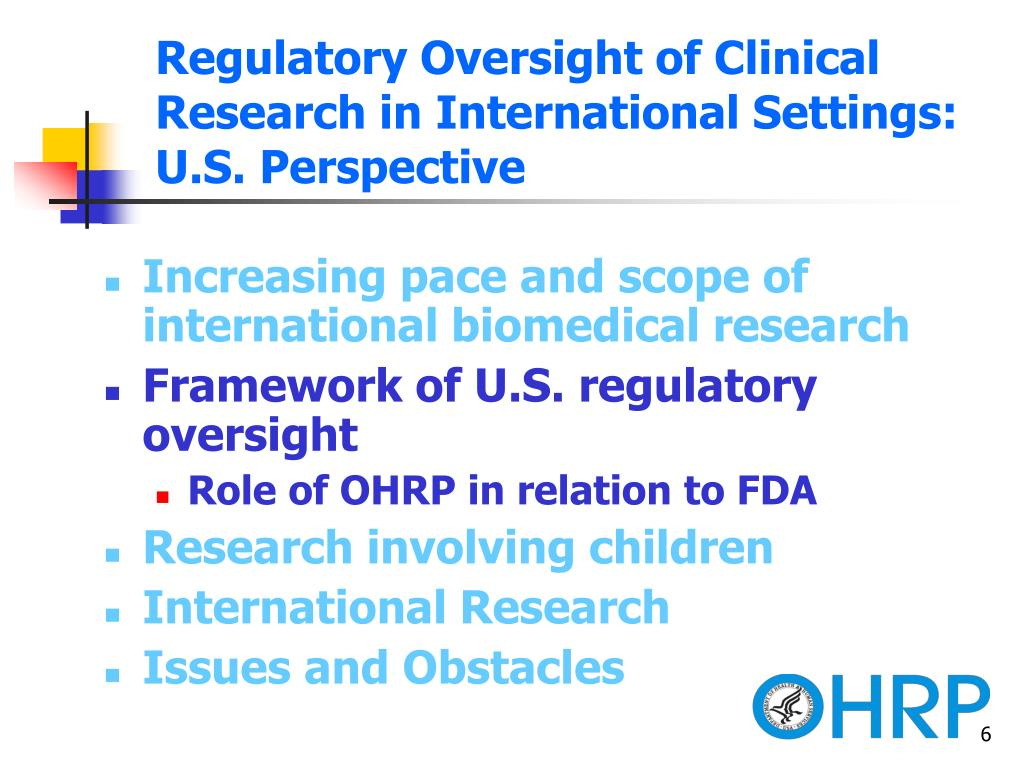
Social connection is increasingly recognized as an essential component of human health, akin to basic necessities like food and shelter. The neurological basis for our need for social interactions has been a topic of intense research, highlighting the critical importance of social connections in maintaining mental health and overall well-being. Recent findings shed light on the hypothalamus and its role in regulating social behavior, emphasizing how social isolation can adversely affect our mental state. Health professionals have raised flags about the detrimental effects of social isolation, underlining the urgent need to foster strong social ties in our communities. Understanding the intricate relationship between social needs and brain function will pave the way for better mental health outcomes and enrich our societal interactions.
In today’s fast-paced world, the drive for interpersonal relationships often goes unnoticed, yet it is fundamentally rooted in our biological makeup. The urge to connect with others transcends mere companionship; it encompasses the broader spectrum of social behavior, significantly impacting our emotional health. Research increasingly illustrates how interactions among individuals influence mental wellness and social dynamics, revealing a complex interplay between neurological pathways and social needs. As communities evolve in their communications—balancing in-person gatherings with online engagements—the importance of these social bonds cannot be undervalued. Establishing strong human connections serves not only as a remedy for social isolation effects but also as a contributor to healthier mental states.
The Neurological Basis of Social Needs
Recent research conducted by Ding Liu and his team has shed light on the neurological underpinnings of social needs. These studies reveal that the brain’s hypothalamus plays a crucial role in regulating not only basic physiological needs such as hunger and thirst but also the complex drive for social interaction. By examining neural activity patterns in response to social isolation, the researchers have begun to map how the brain encodes the instinctual craving for companionship. Understanding these mechanisms is paramount, as social needs can significantly impact mental health, illustrating a profound connection between our neurological functions and our social behaviors.
The findings suggest that social interaction may not merely be a pleasurable pursuit; rather, it could be an essential biological function aimed at preventing emotional distress. Aberrations in social engagement can lead to detrimental health outcomes, such as heightened susceptibility to mental disorders. This discovery reinforces the significance of fostering social connections, as they may counteract negative health ramifications associated with social isolation.
Importance of Social Interactions for Mental Health
Engaging in social interactions is fundamental to maintaining mental well-being. The study emphasizes that social isolation can exacerbate mental health issues like anxiety and depression. When individuals lack meaningful connections, they may face heightened vulnerability to emotional distress and cognitive decline, particularly in significant populations affected by conditions such as autism and schizophrenia. Health professionals are increasingly recognizing the importance of fostering social networks as a protective factor against these mental health challenges.
Moreover, social interactions can stimulate the release of neurotransmitters such as serotonin and oxytocin, which positively affect mood and overall emotional health. This biological response reinforces the necessity of social bonds as a core component of not just mental wellness but also as a crucial factor in living fulfilling lives. By nurturing our relationships with others, we not only satisfy our social needs but also improve our mental health outcomes.
Social Isolation Effects on Individuals
The negative impacts of social isolation extend far beyond mere loneliness; they can lead to significant psychological and physical health challenges. Extended periods without social contact can alter one’s ability to relate socially, leading to a self-perpetuating cycle of withdrawal and despair. Liu’s research suggests that after prolonged isolation, individuals might develop an aversion to social interactions, further entrenching the cycle of loneliness and its health implications.
The ramifications of social isolation can lead to a decline in cognitive functions and an increase in stress-related disorders. Additionally, the study indicates that when social needs are unmet, individuals may turn to unhealthy coping mechanisms, which could further exacerbate mental health challenges. Understanding these effects provides critical insights for intervention strategies aimed at fostering social connections and reducing the prevalence of social isolation, both within communities and among vulnerable populations.
Hypothalamus and Social Behavior
The role of the hypothalamus in social behavior is a pivotal finding in recent neurological studies. Liu’s team discovered that specific neurons in the hypothalamus are activated during social deprivation and reunion phases, suggesting that this area of the brain is integral to how social needs are processed. The hypothalamus is classically known for regulating essential physiological functions; however, its extension into the domain of social behavior highlights a more intricate understanding of how fundamental social needs correlate with basic survival instincts.
This research opens new avenues for further exploration into brain functions. By deciphering how the hypothalamus communicates social need responses, scientists are laying the groundwork for therapeutic approaches that could enhance social cognitive abilities in individuals suffering from social dysfunctions. Targeting these neural circuits may lead to innovative treatments aimed at ameliorating disorders characterized by inadequate social interactions.
The Biological Significance of Social Connections
The biological significance of social connections extends beyond social enjoyment; they play a vital role in maintaining overall health. Studies indicate that positive social interactions can lower stress levels, improve immune function, and even extend lifespan. Health professionals advocate for initiatives that encourage social engagement, emphasizing how essential it is for nurturing healthy lives. The parallels drawn between physiological needs and social desires highlight the interconnected nature of human health.
Understanding the biochemical reactions that occur during social interactions adds another layer to our knowledge of human behavior. Sociobiological research suggests that social bonds activate reward pathways in the brain, releasing hormones that facilitate feelings of safety and contentment. Hence, promoting social connectivity should be viewed as a public health imperative, as fostering these ties can enhance both individual and community resilience.
The Evolutionary Perspective on Social Needs
From an evolutionary standpoint, the need for social interaction can be seen as a survival mechanism rooted deep in human history. Early humans relied on communal living for protection and resource sharing, which has translated into a modern context where social connectivity is vital for individual and societal survival. By understanding social needs through this lens, we can appreciate their importance not only as cultural constructs but as essential evolutionary adaptations that enhance the likelihood of individual well-being.
Exploring social connection through evolutionary psychology reveals that the drive to form bonds is encoded within our neural architecture. The neuroscience of social behavior illustrates how socialization has influenced human development, underscoring the critical role of social ties in promoting cooperative behaviors that have historically benefited human survival. This evolutionary understanding reinforces the necessity of addressing social needs in contemporary health contexts, advocating for stronger community networks.
Impact of Technology on Social Interactions
The rise of digital communication has transformed how we interact, bringing both challenges and opportunities for social connection. While technology facilitates communication across distances, it often lacks the tactile stimulation that is essential for fully satisfying our social needs. Liu’s remarks regarding the overwhelming nature of digital interactions underscore a growing concern about how the absence of physical presence can impact mental health.
As society becomes increasingly reliant on virtual interactions, it’s essential to assess the potential consequences on our social behaviors and mental well-being. Understanding the balance between digital and face-to-face communication will be vital in ensuring that individuals remain socially connected in a rapidly changing social landscape. Researchers must continue exploring how technological advancements can support rather than replace genuine human interactions.
The Role of Touch in Social Connections
The significance of physical touch in establishing and maintaining social bonds cannot be overstated. Liu’s research indicates that tactile stimulation profoundly influences social behavior and interaction preferences. In both animal studies and human contexts, the act of touching—be it through hugs, handshakes, or even casual contact—serves as a powerful form of communication that reinforces social ties and emotional connections.
Touch not only enhances feelings of closeness but also plays a crucial role in emotional regulation. In human interactions, it has been shown to lower stress levels and promote feelings of security and trust. As societal norms evolve, especially in the context of public health concerns, understanding the biological and psychological significance of touch becomes imperative for fostering healthy relationships and emotional resilience.
Exploring Neuronal Circuits Linked to Social Needs
Research into the neuronal circuits involved in social behavior is unveiling the complexity of social needs and interactions. By identifying specific neurons activated during social experiences, scientists are beginning to construct a detailed map of how socialization influences brain activity and decisions. This exploration extends our understanding of both normal and pathological social behaviors, providing insights that could have widespread implications for mental health interventions.
Further research will likely focus on how these circuits can be targeted therapeutically. If researchers can determine how to activate or inhibit specific neurons linked to social needs, they could potentially develop treatments for conditions that arise from dysfunctions in social behavior, such as depression and anxiety disorders. This represents a promising frontier in neuroscience, with the potential to bridge gaps in our understanding of social interactions and emotional health.
Frequently Asked Questions
What is the neurological basis of social needs and its importance for health?
The neurological basis of social needs is crucial for understanding how the brain regulates our desire for social interactions. Recent studies, including those from the Catherine Dulac Lab, reveal that the hypothalamus plays a vital role in connecting social behavior with our physiological needs. This understanding emphasizes the importance of social interactions, likening it to basic human necessities such as food and water. Engaging in meaningful social relationships is essential for mental health and overall well-being.
How does social isolation affect mental health and social behavior?
Social isolation has significant negative effects on mental health and social behavior. Research has shown that prolonged periods of isolation can lead to changes in how individuals respond to social situations, potentially resulting in a dislike for social interactions. This aspect of social behavior links to conditions such as depression and anxiety, highlighting the importance of maintaining social connections to promote mental health.
Why are social interactions considered basic human needs?
Social interactions are considered basic human needs because they are essential for psychological and physiological well-being. As outlined by health professionals and supported by research, lacking social connection can lead to adverse health outcomes, similar to the effects of inadequate food and shelter. The brain’s encoding of these social needs underlines their fundamental role in human health.
What role do neurotransmitters play in social behavior?
Neurotransmitters such as dopamine, oxytocin, and serotonin are released during social interactions, reinforcing these behaviors and making them rewarding. This biochemical response highlights the interplay between social behavior and mental health, as these chemicals enhance feelings of happiness and connection, illustrating the body’s biological mechanisms related to our social needs.
What insights does current research provide about interactions in a digital world?
Current research suggests that as interactions shift online, the absence of physical touch may impact how we fulfill our social needs. Touch has been identified as a significant aspect of social behavior in humans, similar to findings in animal studies. Understanding these changes can help us better navigate the challenges of establishing social connections in an increasingly digital landscape.
How does prolonged isolation affect the brain’s response to social connections?
Prolonged isolation can alter the brain’s neural responses to social connections, leading individuals to potentially reject social interactions as overwhelming or stressful. Study findings indicate that if social isolation extends beyond certain periods, the brain’s circuitry adapts, diminishing the urge to seek companionship and underscoring the significance of regular social engagement.
What is the importance of touch in fulfilling social needs?
Touch is crucial in fulfilling social needs, as evidenced by studies demonstrating that individuals prioritize tactile experiences when recovering from social isolation. This observation is mirrored in human behavior, where physical touch, such as hugs and handshakes, plays a key role in strengthening social bonds and enhancing emotional connections.
How can insights into social connection improve mental health treatment?
Insights into the neurological and psychological basis of social connection can enhance mental health treatment by integrating social strategies into therapy and care plans. Understanding how social relationships influence mental health opens avenues for interventions that promote social engagement, addressing conditions like depression and anxiety more effectively.
| Key Point | Details |
|---|---|
| Social Connection as a Health Need | Social connection is now recognized as fundamental to human health, comparable to food and shelter. |
| Surgeon General’s Insight | The U.S. Surgeon General identified social isolation as a significant public health issue in 2023. |
| Neurological Basis of Social Needs | New research explores how social needs are encoded in the brain, highlighting the hypothalamus’s role. |
| Mechanisms of Social Interaction | Key neurotransmitters like dopamine and oxytocin are involved in social behavior, linking it to feelings of pleasure and distress. |
| Impacts of Loneliness | Isolation can lead to aversion toward social interactions after prolonged periods. |
| Importance of Touch | Touch is a critical component of social interaction; its absence in digital communications may impact well-being. |
| Research Implications | Understanding the biological roots of social needs can improve mental health insights and social behavior comprehension. |
Summary
Social connection is a vital aspect of human existence, not just enhancing joy but also serving to mitigate distress. The recent study led by Ding Liu reveals profound insights into how our brains process the need for social interaction, paralleling our basic physical needs for nourishment and safety. As we navigate an increasingly digital world, understanding the necessity of tangible social ties — like touch and presence — becomes essential. This research underscores the importance of fostering social relationships, which are paramount for both mental health and overall well-being.

